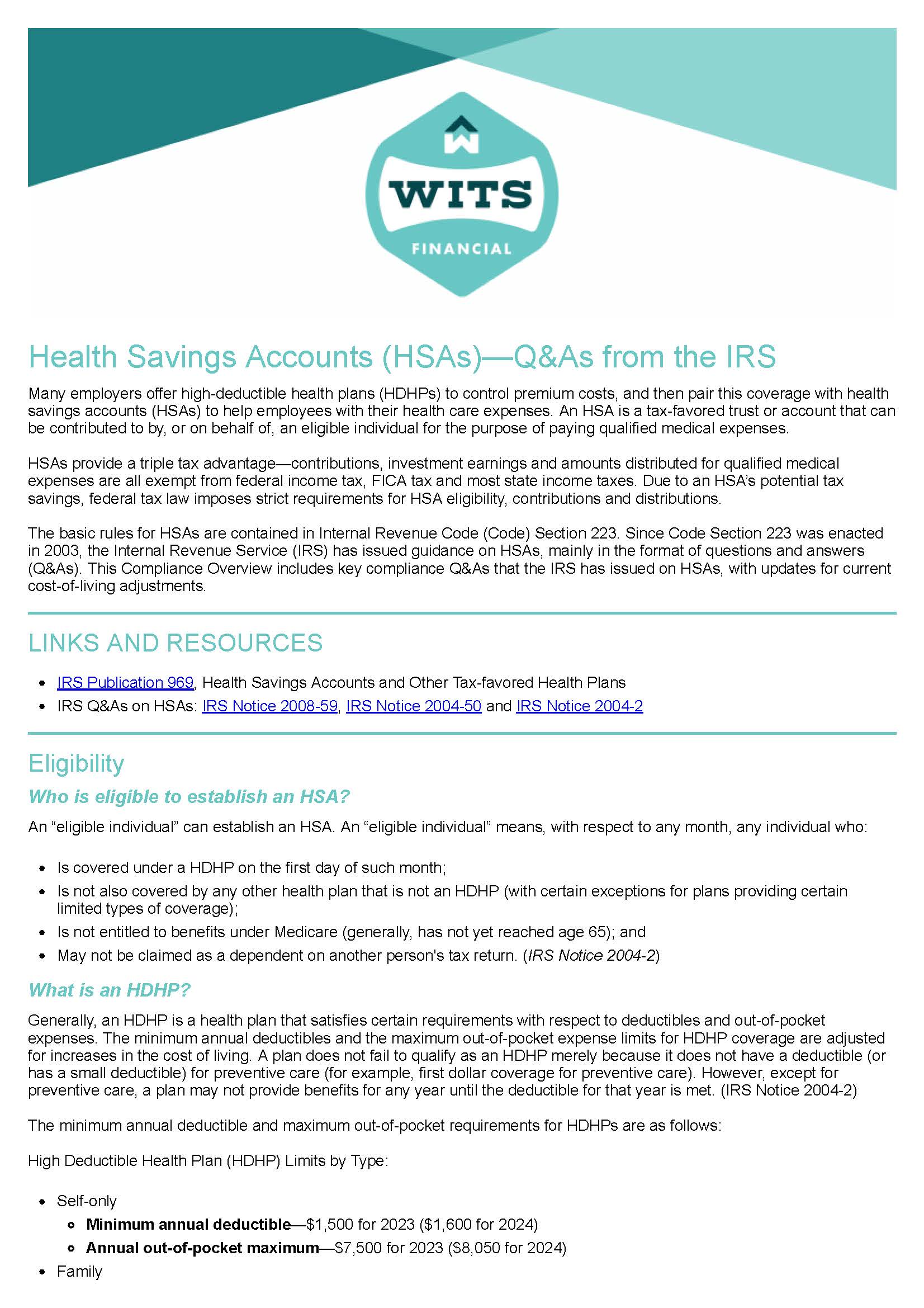Many employers offer high-deductible health plans (HDHPs) to control premium costs, and then pair this coverage with health savings accounts (HSAs) to help employees with their health care expenses. An HSA is a tax-favored trust or account that can be contributed to by, or on behalf of, an eligible individual for the purpose of paying qualified medical expenses.
HSAs provide a triple tax advantage—contributions, investment earnings and amounts distributed for qualified medical expenses are all exempt from federal income tax, FICA tax and most state income taxes. Due to an HSA’s potential tax savings, federal tax law imposes strict requirements for HSA eligibility, contributions and distributions.
The basic rules for HSAs are contained in Internal Revenue Code (Code) Section 223. Since Code Section 223 was enacted in 2003, the Internal Revenue Service (IRS) has issued guidance on HSAs, mainly in the format of questions and answers(Q&As). This Compliance Overview includes key compliance Q&As that the IRS has issued on HSAs, with updates for current cost-of-living adjustments.
We Make it Easy
Let us take the stress out of managing employee benefits.
Schedule a Call
We’ll ask a few questions, review your current benefits and determine your goals.
Let us Do the Leg Work
Based on your needs and budget, we’ll research all available options and help you select the right plan for your employees and your business.
Bask in the Glory
When you’re confident due diligence has been done, and you’ve selected the right plan it’s time to sit back and relax - or get to everything else on your list.
